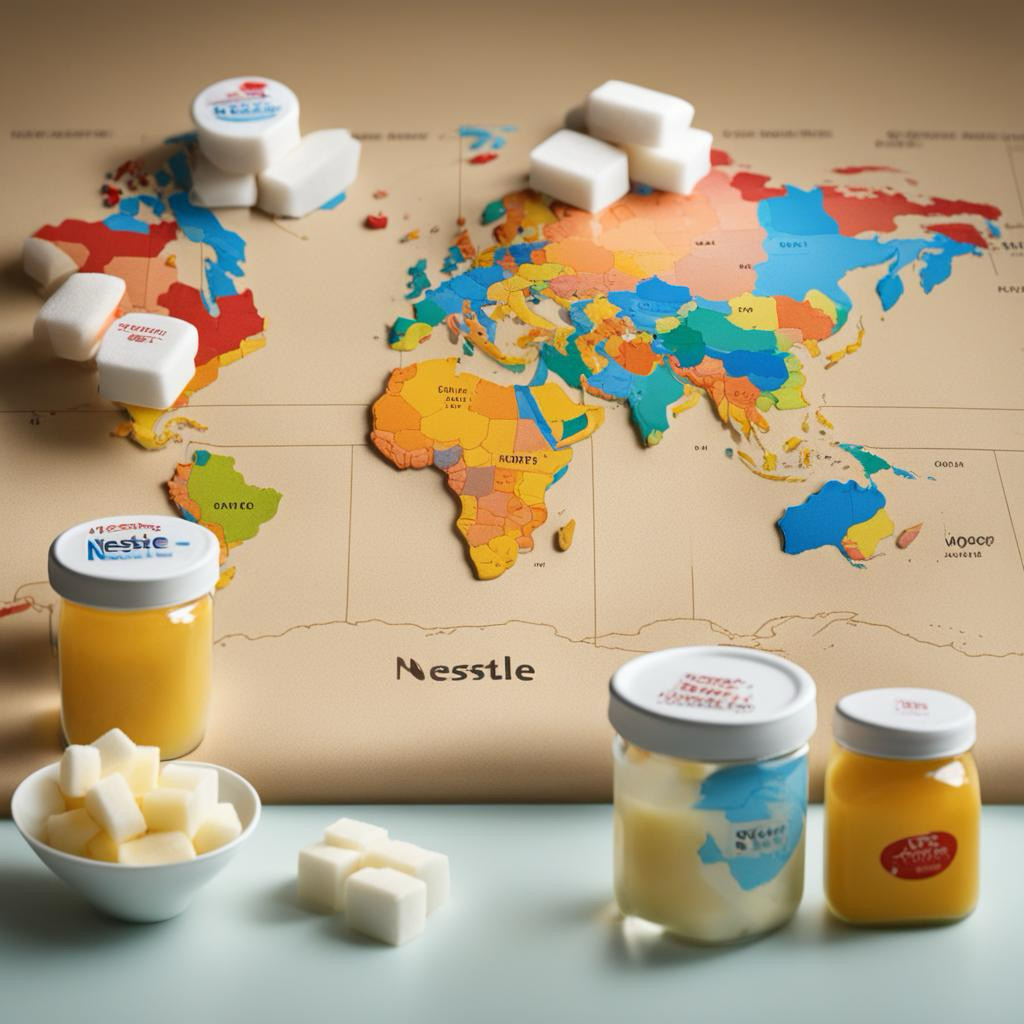
Nestlé, a global leader in food and beverage production, has recently come under fire for adding sugar to its infant milk and cereal products in developing countries while refraining from doing so in European markets. This alarming revelation raises serious concerns about the company’s ethics and practices, as well as the health implications for the vulnerable populations consuming these products.
The decision to add sugar to baby food in poorer countries is not only unethical but also deeply concerning from a health perspective. Sugar is widely recognized as a major contributor to various health issues, including obesity, diabetes, hypertension, and other chronic diseases. By introducing sugar to products targeted at infants and young children, Nestlé is putting these vulnerable populations at risk of developing serious long-term health problems.
The findings of the investigation conducted by Public Eye and the International Baby Food Action Network (IBFAN) are truly shocking. The fact that almost all of Nestlé’s Cerelac wheat-based cereals in low and middle-income nations contain added sugar equivalent to an average of 4 grams per serving is deeply troubling. This level of sugar intake for infants as young as six months old is completely unnecessary and potentially harmful to their health.
Furthermore, the lack of transparency in labeling regarding the added sugar content in these products is unacceptable. Seven out of 15 countries did not disclose on product labels that sugar had been added, which deprives consumers of vital information needed to make informed choices about their children’s nutrition. This lack of transparency further underscores Nestlé’s disregard for the well-being of its consumers in these regions.
The fact that Nestlé is adding sugar to its Nido powdered-milk products aimed at toddlers aged one to three is equally concerning. With almost two grams of added sugar per serving, and even higher levels in some countries like Panama, Nestlé is continuing to put profits over the health of the children it claims to serve. This blatant disregard for the health and well-being of vulnerable populations is disgraceful and should not be tolerated.
It is clear that Nestlé’s decision to add sugar to baby food in poorer countries is motivated by profit rather than genuine concern for the health of its consumers. By prioritizing financial gains over ethical considerations, Nestlé is perpetuating a cycle of harm and exploitation that disproportionately affects the most vulnerable members of society. This practice must be condemned in the strongest terms possible, and Nestlé must be held accountable for its irresponsible actions.
To wrap this up, the revelation that Nestlé is adding sugar to baby food in poorer countries is deeply troubling and highlights the urgent need for greater oversight and regulation of the food industry. It is imperative that companies like Nestlé are held accountable for their actions and that measures are taken to protect the health and well-being of vulnerable populations around the world. The time for change is now, and consumers must demand transparency, accountability, and ethical practices from the companies they support. Only through collective action can we ensure a safer and healthier future for all.
CHECKOUT MY RADIANCE SECRET HERE




